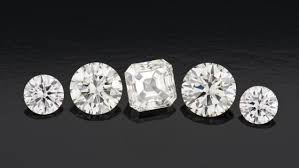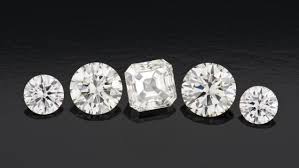
Diamond has always faced a conflict question - Why not grow a stone in a laboratory, free from bloody wars and ethical conflicts that taint the $79 billion diamond industry?
And it is questions like these that was the reason for the birth of companies like Ada Diamonds — a start-up make stones identical to those extracted from nature with the use of a special process using high pressure and temperature to provide lab-grown diamonds.
A seed round from eight venture capitalists including Winklevoss Capital and Autonomous was raised by the husband and wife team of Jason Payne and Lindsay Reinsmith.
Diamond jewels that don't have ties to insurgencies or politically unstable countries is produced by companies like Ada Diamonds - which is part of a growing trend of diamond producers using environmentally sustainable, and ethical, means. With a focus on high fashion and bridal jewelry, the company makes bespoke fine jewelry using a proprietary process. While the entire process is ethically sourced, diamonds with marks for special occasions or mementos can now be customized by customers.
"Ada is focused on educating consumers on the ethics of our diamonds. Ada is also vegan, which people may not realize," Reinsmith said.
"We don't demonize mined stones for what they are. The vast majority of our customers own natural diamonds, [but] this is an amazing alternative to mined diamonds," she added. "They are meaningful and can be grown through your own donor carbon. It's an opportunity to expand jewelry market in a unique and special way."
"Companies involved in the global diamond trade … have a responsibility to [address] human rights and other harms."-Alice Harle, Global Witness
Ian Smillie, the Chair of the Diamond Development Initiative said that places where there are no human rights concerns like Canada and Botswana are the places from where the majority of the world's diamonds are mined. However, artisanal mining, a practice that poses a number of environmental, health and human rights issues and a practice that occurs in 18 countries across Africa and South America is the source of the remaining 20 percent pf the diamonds.
A source of global concern and a cause célèbre was stemming the flow of conflict diamond from parts of Africa more than a decade ago. The share of blood diamonds in the global supply has been cut dramatically, to less than 1 percent, recent United Nations data show.
Still, demands of discerning consumers who demand jewels untainted by armed conflict have to be accommodated by retailers. A unique business proposition to meet the market's demand for conflict-free diamonds is being used by smaller jewelers like Ada and Brilliant Earth.
Environmentally friendly and ethically sourced jewelry free from human rights abuses or civil wars is created and sold by Brilliant Earth - founded in 2005 by Beth Gerstein, an electrical engineer with a Stanford MBA. The company ensures that the latter are mined from "pure ethical sources" as it uses both lab-grown and natural diamonds.
"The reason that there's a lot of popularity about lab-grown diamonds is that they are responsible, affordable and really speak to the millennial audience," said Gerstein adding that there exists a bright future for lab-grown diamonds.
"When I was getting engaged, it was really important that I buy a diamond that was consistent with my values, and it was very difficult to trace the origin of a diamond," she said. "If you think about a diamond, it's such an emotionally resonant item. So it was really inconsistent that there wasn't anything that was available [with a] history that was as pure and as beautiful as the emotions," she said.
(Source:www.cnbc.com)
And it is questions like these that was the reason for the birth of companies like Ada Diamonds — a start-up make stones identical to those extracted from nature with the use of a special process using high pressure and temperature to provide lab-grown diamonds.
A seed round from eight venture capitalists including Winklevoss Capital and Autonomous was raised by the husband and wife team of Jason Payne and Lindsay Reinsmith.
Diamond jewels that don't have ties to insurgencies or politically unstable countries is produced by companies like Ada Diamonds - which is part of a growing trend of diamond producers using environmentally sustainable, and ethical, means. With a focus on high fashion and bridal jewelry, the company makes bespoke fine jewelry using a proprietary process. While the entire process is ethically sourced, diamonds with marks for special occasions or mementos can now be customized by customers.
"Ada is focused on educating consumers on the ethics of our diamonds. Ada is also vegan, which people may not realize," Reinsmith said.
"We don't demonize mined stones for what they are. The vast majority of our customers own natural diamonds, [but] this is an amazing alternative to mined diamonds," she added. "They are meaningful and can be grown through your own donor carbon. It's an opportunity to expand jewelry market in a unique and special way."
"Companies involved in the global diamond trade … have a responsibility to [address] human rights and other harms."-Alice Harle, Global Witness
Ian Smillie, the Chair of the Diamond Development Initiative said that places where there are no human rights concerns like Canada and Botswana are the places from where the majority of the world's diamonds are mined. However, artisanal mining, a practice that poses a number of environmental, health and human rights issues and a practice that occurs in 18 countries across Africa and South America is the source of the remaining 20 percent pf the diamonds.
A source of global concern and a cause célèbre was stemming the flow of conflict diamond from parts of Africa more than a decade ago. The share of blood diamonds in the global supply has been cut dramatically, to less than 1 percent, recent United Nations data show.
Still, demands of discerning consumers who demand jewels untainted by armed conflict have to be accommodated by retailers. A unique business proposition to meet the market's demand for conflict-free diamonds is being used by smaller jewelers like Ada and Brilliant Earth.
Environmentally friendly and ethically sourced jewelry free from human rights abuses or civil wars is created and sold by Brilliant Earth - founded in 2005 by Beth Gerstein, an electrical engineer with a Stanford MBA. The company ensures that the latter are mined from "pure ethical sources" as it uses both lab-grown and natural diamonds.
"The reason that there's a lot of popularity about lab-grown diamonds is that they are responsible, affordable and really speak to the millennial audience," said Gerstein adding that there exists a bright future for lab-grown diamonds.
"When I was getting engaged, it was really important that I buy a diamond that was consistent with my values, and it was very difficult to trace the origin of a diamond," she said. "If you think about a diamond, it's such an emotionally resonant item. So it was really inconsistent that there wasn't anything that was available [with a] history that was as pure and as beautiful as the emotions," she said.
(Source:www.cnbc.com)














